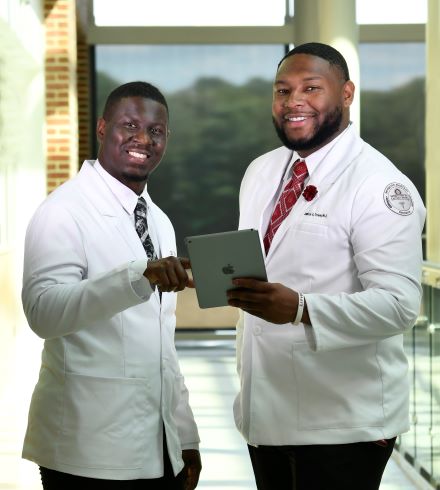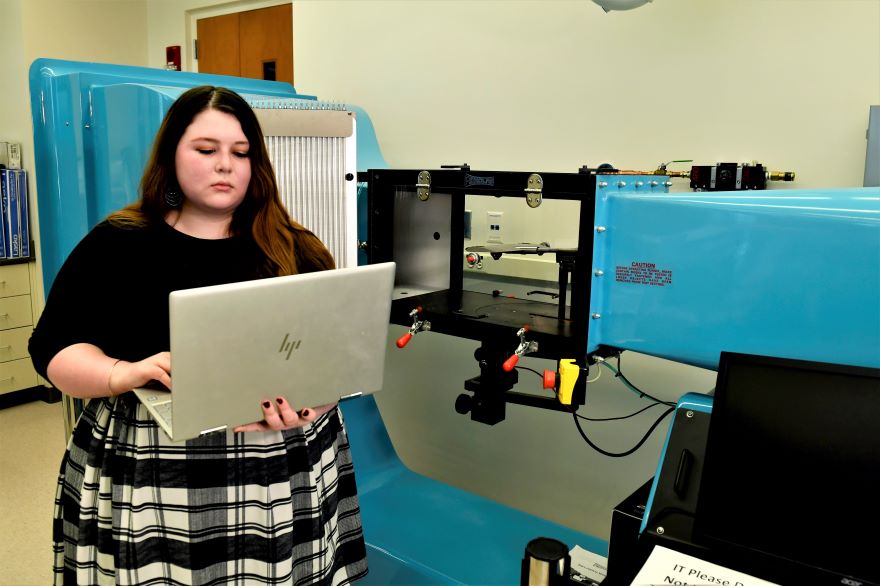
L. Courtney Camille & R. Jamison Trower
The University of Maryland Eastern Shore and four other historically black institutions announced a partnership today with Princeton University and the United Negro College Fund to promote research between HBCU faculty and counterparts at the Ivy League school.
The projects will be funded by Princeton through its new Princeton Alliance for Collaborative Research and Innovation (PACRI).
Teams of Princeton-HBCU researchers are invited to submit proposals by June 30. The aim is to fund multiple collaborative projects annually between Princeton and partnering institutions.
“Collaboration is a powerful force for new ideas and creativity in research and scholarship,” Princeton research dean Pablo Debenedetti said.
“By creating a mechanism that encourages faculty from Princeton and HBCUs to work together, we hope to spark the creation of new teams of researchers that bring together people with different perspectives, experiences and expertise,” said Debenedetti, the Class of 1950 Professor in Engineering and Applied Science and professor of chemical and biological engineering. “The potential to generate new knowledge and discoveries across a wide range of disciplines is very exciting.”
This broad scope of the program, Princeton said, is well suited to the research interests of faculty at a number of the partner institutions, including Spelman and UMES.
According to UMES President Heidi M. Anderson, “The majority of our graduates are in STEM fields, and as a Carnegie Designated High Research University, we do significant research; however, our students also benefit from the critical thinking skills gained in the humanities. Working with their peers at Princeton will be a great benefit to all faculty.”
“We look forward to the light that will shine on our campus as a result of participating in PACRI and showcasing the exciting work our faculty and students are doing,” Anderson said.
Rodney Priestley, Princeton’s vice dean for innovation and a co-leader of the PACRI program, said, “We highly value partnerships at Princeton, whether they are with other academic institutions, industry, governments or nonprofits. We believe these collaborations enable Princeton researchers and innovators to achieve things we cannot achieve alone.”
Tod Hamilton, associate professor of sociology and acting director of Princeton’s Office of Population Research, is co-leading PACRI with Priestley. He notes that research collaborations, particularly those that cross disciplinary and institutional boundaries, are critical to generating cutting-edge insights needed to advance the frontier of knowledge within the academy and broader society. “We all benefit from initiatives that facilitate the exchange of ideas and remove barriers to innovation,” Hamilton said.
Princeton worked with UNCF to get the program off the ground, enlisting its assistance to identify partners in this inaugural year.
“UNCF is excited to support this groundbreaking initiative connecting Princeton University faculty and research faculty at HBCUs,” said Chad Womack, senior director of UNCF’s National STEM Programs and Initiatives.
“PACRI will provide much-needed funding to help establish sustainable research collaborations between Princeton and HBCU faculty across a variety of HBCU campuses,” Womack said.
“We expect phenomenal proposals from HBCU research faculty and their Princeton partners, and look forward to helping to build research capacity at each of the esteemed HBCUs participating” in the partnership, Womack said.
Dr. LaKeisha Harris, dean of UMES’ School of Graduate Studies and Research, is the university’s PACRI liaison and is encouraging her faculty colleagues to generate proposals that would qualify for collaboration with Princeton counterparts.

as an engineering student using UMES’ wind tunnel.
“UMES faculty, I’m confident, will embrace this opportunity to work with and alongside their peers at Princeton on research ideas important to both institutions,” Harris said. “This will also be a chance to show our students how collaboration can lead to positive results.”
Each HBCU sees possibilities in the program that fit its faculty and institutional interests.
Princeton’s Hamilton pointed out the new program is not limited to science, technology-engineering, and math; PACRI aims to provide funding across all academic disciplines.
“A commitment to the liberal arts is at the core of Princeton University’s mission,” Hamilton said. “Advancing scholarship in the humanities and social sciences is a critical goal of the new alliance.”

